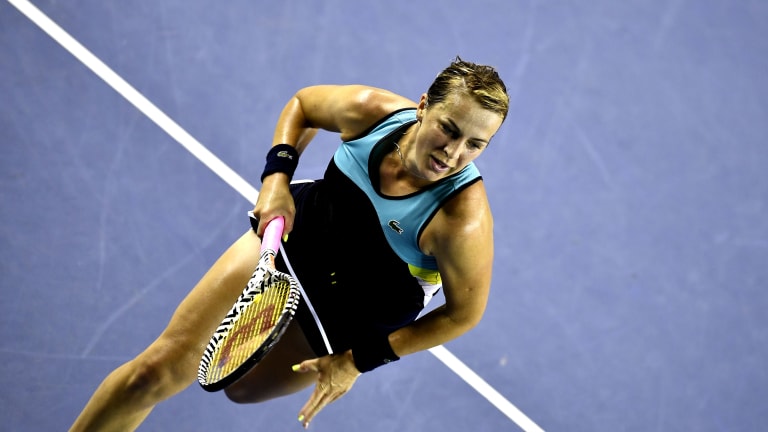There will be lots of "where we left off" discussion in the coming weeks, as the pro tours make their returns. Some things are hard to forget, like Sofia Kenin's three-set win over Garbine Muguruza in the Australian Open final. Other happenings may have faded over time. For example, do you remember the other six quarterfinalists of that Australian Open?
Besides the finalists, the big names were Ashleigh Barty, Petra Kvitova and Simona Halep. There was also Ons Jabeur's remarkable and historic run to the last eight, and there was Anett Kontaveit—who, in a faster format, may have won the Aussie Open.
The other quarterfinalist? Anastasia Pavlyuchenkova. It’s hard to believe the hard-hitting Russian is only 29, but she continues to be a player no one wants to face. In Melbourne, Pavlyuchenkova ousted No. 2 seed Karolina Pliskova in two tiebreakers, then topped former champion Angelique Kerber in three sets. She hit her ceiling in losing to Muguruza—Pavlyuchenkova is 0-6 in Grand Slam quarterfinals—but that doesn’t make her any less of a threat.
In case you’d forgotten about Pavlyuchenkova, the Ultimate Tennis Showdown 2 served as another reminder of her abilities. With a sudden-death victory over Alize Cornet, Pavlyuchenkova became the first women’s champion of UTS.
“I love winning no matter what it is.” said Pavlyuchenkova. “It’s just nice.”
